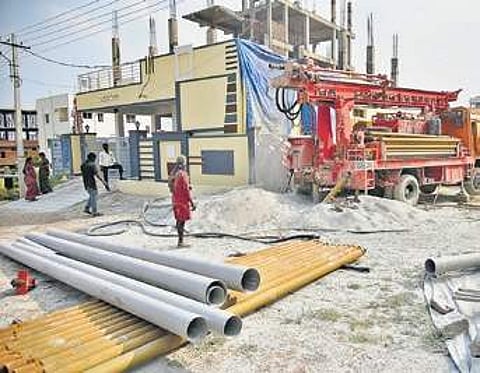

NEW DELHI: Concerned over exploitation of groundwater, the Union ministry of environment and forest has made it mandatory for infrastructure projects to seek ‘no objection’ certificate from the Central Ground Water Authority (CGWA) for using groundwater for project activities and state should refrain from issuing clearance to project in absence of certificate.
The Ministry of Environment, Forest and Climate Change (MoEFCC) in a November 2 official order has decided to include go-ahead from the CGWA as part of the Terms of Reference while prescribing environment clearance to development projects. “In the projects where groundwater is proposed as water source, the project proponent shall apply to the Central Ground Water Authority (CGWA) or State Ground Water Authority (SGWA), for obtaining NoC, if applicable. The environment ministry may ensure that such an application has been made,” said the order.
It further says that approval of the CGWA or state shall be obtained before drawing groundwater for the project. The State Pollution Control Board shall not issue consent to Operate till the project proponent obtain such permission. “The state pollution control board concerned shall not issue consent to operate till the project proponent obtain such permission,” it added.
As per the central groundwater board assessment, the total annual replenishable groundwater resource is around 433 Billion Cubic Metres (BCM). The net annual groundwater availability is 398 BCM out of which annual groundwater utilisation (draft) is estimated at 245 BCM and stage of groundwater exploitation is 62 per cent.
Experts feel that there is an effort to ensure that the issue of groundwater withdrawal is addressed at the stage when Terms of Reference is granted for the preparation of an EIA (environment impact assessment) but the challenge continues to be at the level of compliance.“Projects often initiate construction or operations without having necessary approvals for groundwater extraction. The has been a regulatory lacunae and requires reminding project authorities of procedures,” said Kanchi Kohli, legal research director, CPR-Namati Environment Justice Program.